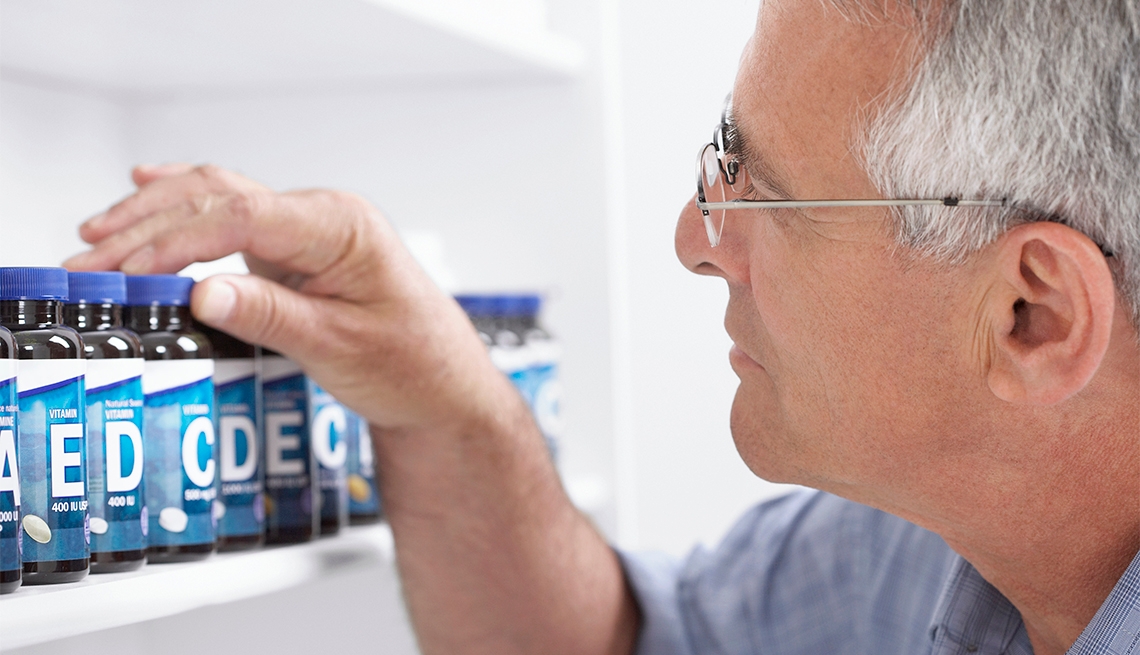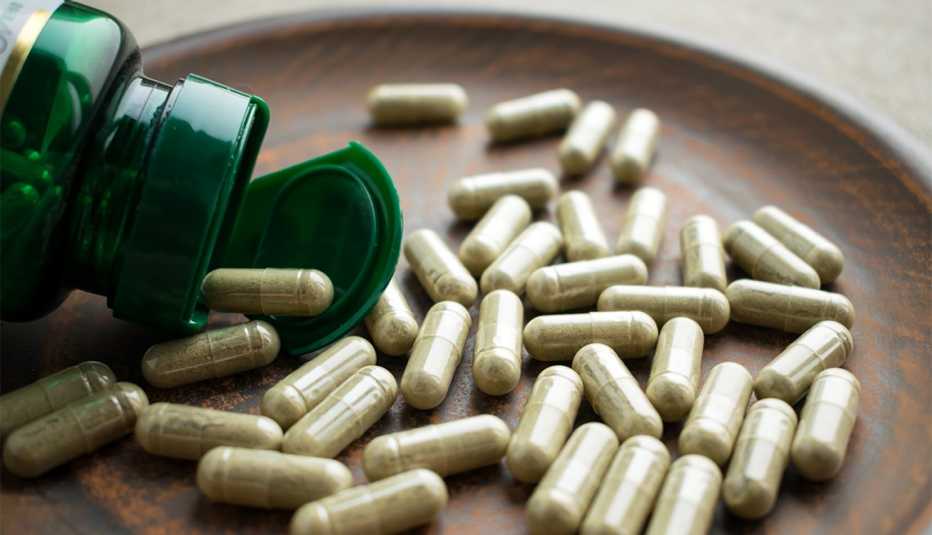AARP Hearing Center
AARP's Brain Health and Dietary Supplements Survey, released today, shows that Americans age 50 and older are wolfing down the biggest slice of the very large brain-health supplements market, one expected to reach $5.8 billion in sales by 2023.
The survey, which sheds light on the both supplement buying behavior and the possible motivations behind it, also reveals some major misconceptions — for one, that supplements are regulated by the government for things like purity of their ingredients or validity of their claims.
The results also show that effectiveness of supplements for boosting memory or brain power is a major concern of those who regularly purchase them — a concern that appears to be more than valid, according to a separate report from AARP's Global Council on Brain Health, also released today. Here's a closer look at who's taking which vitamin, herb or nutraceutical and why.
Survey results show that members of the Greatest and Silent generations are the most likely to be buyers of all supplements, and of those for brain health in particular.
More than three-quarters of adults over age 74 take some sort of vitamin or dietary supplement, as do almost 70 percent of boomers (those between 55 and 73). “The older people are, the more likely they are to turn to supplements because they begin to develop concerns about their health, especially conditions such as dementia,” says Tod Cooperman, president and founder of ConsumerLab.com, an independent evaluator of dietary supplements.
AARP's survey backs that up: It shows that more than a quarter of Americans ages 50 to 73 are regularly taking supplements for their brain health, and that this figure rises to 36 percent for those over 74.
Among adults taking something like gingko biloba or omega-3 tablets, 21 percent report taking dietary supplements to maintain — and 20 percent to improve — their brain health. In addition, 11 percent report currently taking a supplement to delay the onset of dementia, and 8 percent say they take a supplement to reverse dementia.
The most popular supplements adults take for memory enhancement, according to the survey, are omega-3, turmeric/curcumin and green tea.





































































